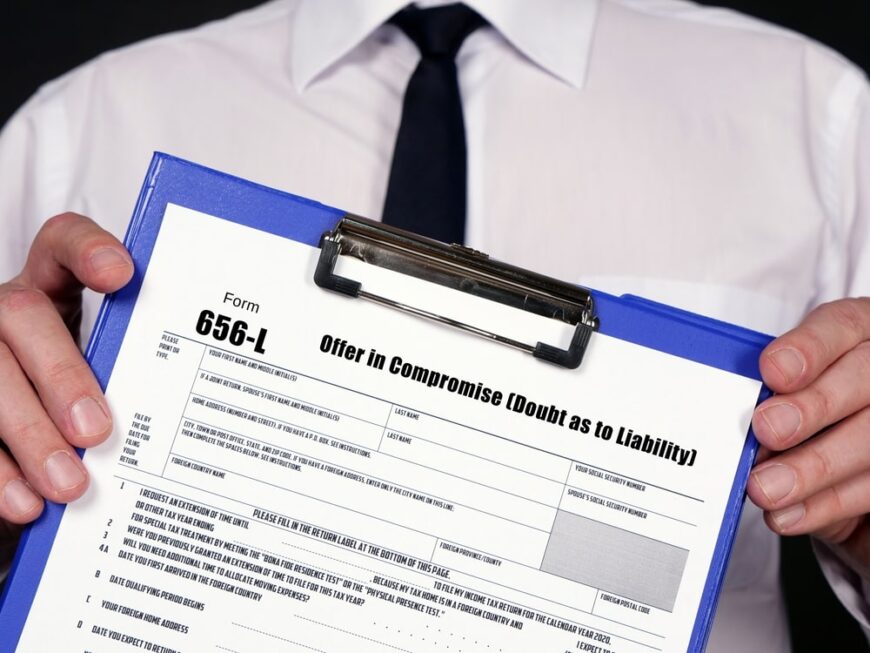
An offer in compromise is an agreement between you and the Internal Revenue Service (IRS) that settles a tax debt for less than the full amount owed. The program provides eligible taxpayers a path toward paying off their tax debt and getting a “fresh start.” While many people associate an offer with situations where the IRS doubts its ability to collect the full amount (doubt as to collectibility) or where enforcement would be unfair (effective tax administration), there is a third basis: doubt as to liability. The ultimate goal is a compromise that suits the best interest of both the taxpayer and the IRS.
If you doubt that you owe part or all of the tax debt, you must complete a Form 656-L in Offer in Compromise (Doubt as to Liability). Submitting an offer application does not guarantee that the IRS will accept your offer. It begins a process of evaluation and verification by the IRS.
Doubt as to liability exists when there is a genuine dispute about the existence or amount of the correct tax debt under the law. Doubt as to liability does not exist if the tax debt has been established by a final court decision or judgment concerning the existence or amount of the tax debt.
You must provide supporting documentation or evidence that will help the IRS identify the reason(s) you doubt the accuracy of the tax debt to obtain tax relief. You must include a written statement explaining why the tax debt or portion of the tax debt is incorrect.
Your offer amount should be based on what you believe the correct amount of the tax debt should be, not what you owe. You must offer more than zero ($0).
Some possible reasons for submitting a doubt as to liability offer in compromise include: (1) the examiner may have misunderstood the interpretation of the tax law, (2) the examiner might not have considered all the evidence presented, or (3) new evidence has become available that supports a change in the assessment.
Doubt as to Liability Situations
Below are some examples of when making an offer based on doubt as to liability may be appropriate.
Example 1: You filed your tax return showing a balance due that you have not paid. Later, you find an error in the income reported and file an amended return that reduces the amount owed. The IRS rejects your amended return or does not process it. At this point, you can request a doubt as to liability offer in compromise. If the IRS agrees with your claim, they will reduce your tax debt.
Example 2: You were audited by the IRS. However, due to circumstances beyond your control, you were unaware of the audit or unable to attend, and all items under audit are disallowed. This results in a tax assessment. You collected evidence to support the disallowed items and requested audit reconsideration, but it was denied and did not appeal. In such a case, an offer in compromise based on doubt as to liability could solve your tax problems.
Example 3: You are an officer of a corporation that has employees. You are not in a decision-making position or have the authority to pay bills or sign checks. The business is struggling to make ends meet. To pay suppliers, the money that should have been paid to the IRS as a federal tax deposit was used to continue business operations. In an effort to collect the trust fund taxes of the employee’s wages, the IRS assessed a trust fund penalty against you and all the other officers of the corporation. You were not responsible for collecting and paying the withheld income and employment taxes. You have documentation and supporting statements for that fact; therefore, you should submit an offer.
Get Help with an Offer in Compromise Doubt as to Liability
A doubt as to liability offer in compromise is an under-used tool and, in certain circumstances, may help resolve your IRS tax problems. If you find sufficient evidence to show that the assessed tax debt is incorrect or should not have been assessed at all, a doubt as to liability offer should be considered. Call East Coast Tax Consulting Group today to find the right solution to your tax problems.

